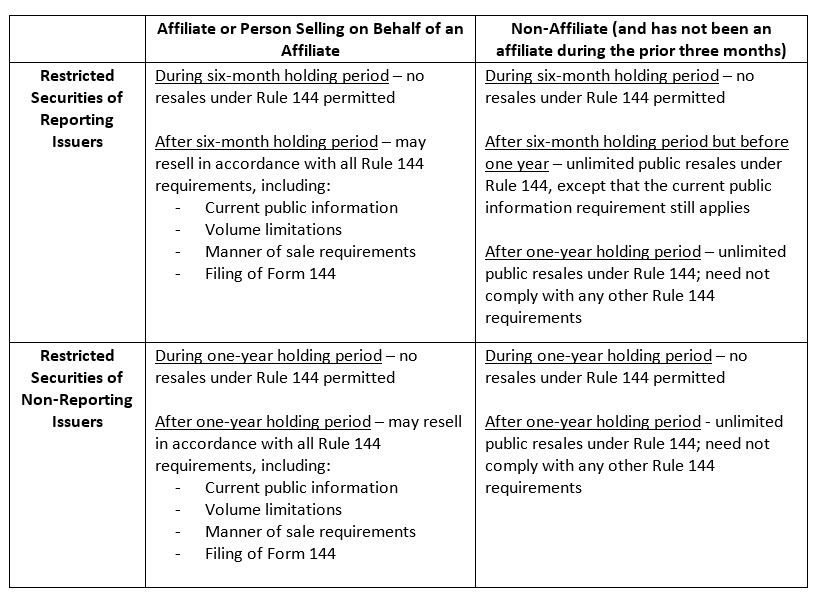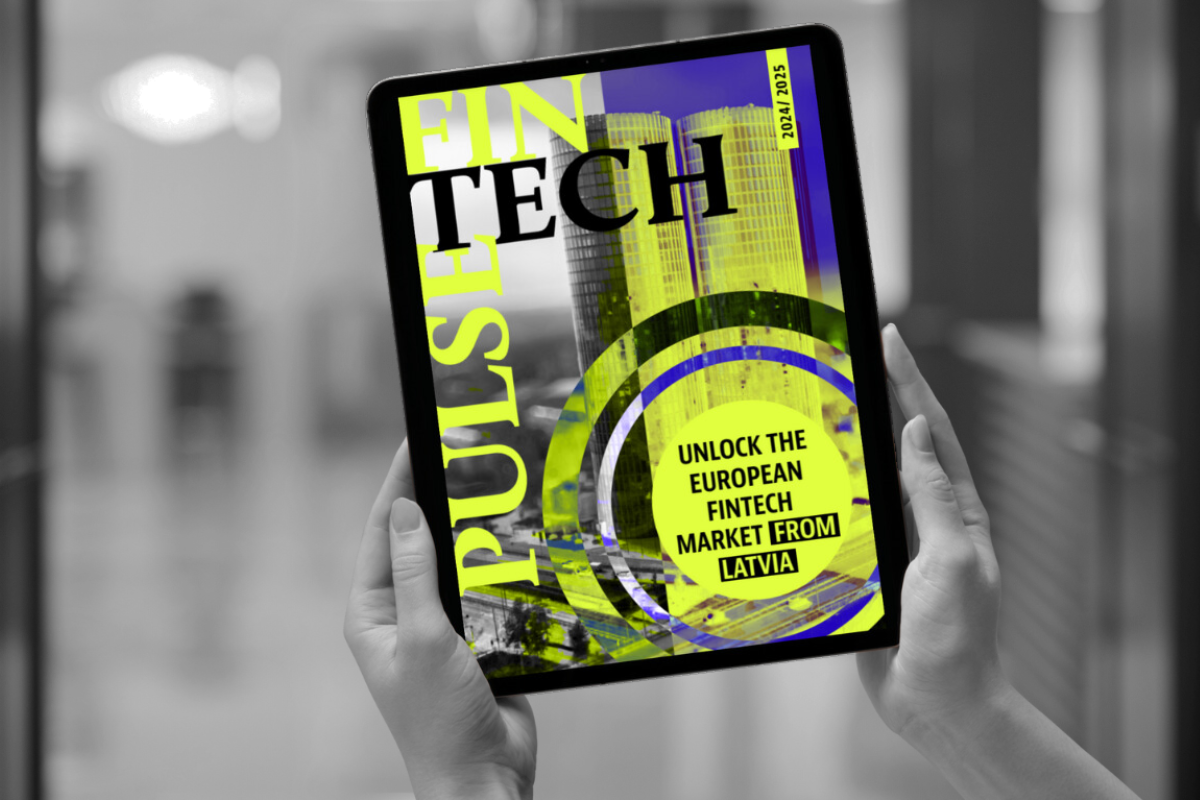Fintech
SEC Proposes Amendments to Rule 144 and Form 144

Washington, D.C.–(Newsfile Corp. – December 22, 2020) – The Securities and Exchange Commission today voted to propose an amendment to Rule 144 under the Securities Act of 1933 to revise the holding period determination for securities acquired upon the conversion or exchange of certain “market-adjustable securities”. The proposed amendment is intended to reduce the risk of unregistered distributions in connection with sales of those securities. The Commission also voted to propose amendments to update and simplify the Form 144 filing requirements.
“Today’s proposed amendments modernize, clarify and strengthen Rule 144, including to ensure that holders of market-adjustable securities are assuming the economic risks of their investment rather than acting as a conduit for an unregistered sale of securities to the public on behalf of an issuer,” said SEC Chairman, Jay Clayton. “In addition, the proposed shift to electronic filing of Form 144 provides a necessary update to reflect today’s markets, particularly given the benefits – and the feasibility – of electronic filing our experience over the past nine months has demonstrated.”
Currently, Rule 144 deems securities acquired solely in exchange for other securities of the same issuer to have been acquired at the same time as the securities surrendered for conversion or exchange. Under the amendments, the holding period for the underlying securities acquired upon conversion or exchange of “market-adjustable securities” would not begin until conversion or exchange, meaning that a purchaser would need to hold the underlying securities for the applicable Rule 144 holding period before reselling them under Rule 144.
Additionally, the proposed amendments would mandate electronic filing of Form 144, eliminate the requirement to file a Form 144 with respect to sales of securities issued by companies that are not subject to Exchange Act reporting, and amend the Form 144 filing deadline to coincide with the Form 4 filing deadline.
The public comment period will remain open for 60 days following publication of the proposing release in the Federal Register.
***
FACT SHEET
SEC Proposes Amendments to Rule 144 and Form 144
Dec. 22, 2020
Background
Rule 144 provides a non-exclusive safe harbor from the statutory definition of “underwriter” to assist security holders in determining whether the Section 4(a)(1) exemption from registration is available for their resale of restricted or control securities. Rule 144 sets forth objective criteria on which security holders seeking to resell such securities may rely to avoid being deemed to be engaged in a distribution and, therefore, to avoid acting as an underwriter under Section 2(a)(11) of the Securities Act.
In transactions involving market-adjustable securities, the discounted conversion or exchange features in these securities typically provide holders with protection against investment losses that would occur due to declines in the market value of the underlying securities prior to conversion or exchange. Rule 144 currently deems securities acquired solely in exchange for other securities of the same issuer to have been acquired at the same time as the securities surrendered for conversion or exchange. As a result, after the Rule 144 holding period is satisfied, holders can convert the market-adjustable securities and quickly sell the underlying securities into the public market at prices above the price at which they were acquired. This creates an incentive to purchase the market-adjustable securities with a view to distribution of the underlying securities to capture the difference between the built-in discount and the market value of the underlying securities.
An affiliate of an issuer who intends to resell more than a specified amount of restricted or control securities of the issuer in reliance on Rule 144 must file a Form 144 with the Commission. The current rules permit Form 144 to be filed electronically or in paper if the issuer of the securities is subject to Exchange Act reporting requirements. Otherwise, Form 144 must be filed in paper.
Highlights
Rule 144 Holding Period
The proposal would amend Rule 144(d)(3)(ii) to eliminate “tacking” for securities acquired upon the conversion or exchange of the market-adjustable securities of an issuer that does not have a class of securities listed, or approved to be listed, on a national securities exchange. As a result, the holding period for the underlying securities, either six months for securities issued by a reporting company or one year for securities issued by a non-reporting company,would not begin until the conversion or exchange of the market-adjustable securities.
The proposed amendment would not affect the use of Rule 144 for most convertible or variable-rate securities transactions. It would apply only to market-adjustable securities transactions in which:
- The newly acquired securities were acquired from an issuer that, at the time of the conversion or exchange, does not have a class of securities listed, or approved for listing, on a national securities exchange registered pursuant to Section 6 of the Exchange Act; and
- The convertible or exchangeable security contains terms, such as conversion rate or price adjustments, that offset, in whole or in part, declines in the market value of the underlying securities occurring prior to conversion or exchange, other than terms that adjust for stock splits, dividends, or other issuer-initiated changes in its capitalization.
Forms 4, 5, and 144 Filing Requirements
The proposed amendments to the filing requirements for Forms 4, 5, and 144 are intended to update and simplify those requirements. To do so, the proposal would:
- Mandate the electronic filing of Form 144;
- Eliminate the Form 144 filing requirement related to the sale of securities of issuers that are not subject to the reporting requirements of Section 13 or 15(d) of the Exchange Act;
- Amend the Form 144 filing deadline so that Form 144 may be filed concurrently with Form 4 by persons subject to both filing requirements; and
- Amend Forms 4 and 5 to add an optional check box to indicate that a reported transaction was intended to satisfy Rule 10b5-1(c), which provides an affirmative defense for trading on the basis of material non-public information in insider trading cases.
The Commission plans to make an online fillable Form 144 available to simplify electronic filing and to streamline the electronic filing of Forms 4 and 144 reporting the same sale of an issuer’s securities. The proposal would provide a six-month transition period to give Form 144 paper filers who would be first-time electronic filers sufficient time to apply for codes to make filings on EDGAR.
What’s Next?
The proposal will be subject to a 60-day public comment period.
Fintech
Former MD of SUI Foundation, Greg Siourounis, Joins xMoney Global as Co-Founder and CEO to build MiCA-Regulated Stablecoin Platform

xMoney Global, the global, inter-bank and cross crypto/fiat integrated payments platform has appointed award-winning economist Dr. Greg Siourounis as Co-Founder and CEO. The company is a Mastercard principal member, with strategic European licenses, such as e-Money and VASP.
As the digital landscape continues to evolve with the coming MiCA regulation, xMoney Global intends to lead Europe into this new transformative EU regulated stablecoin era. Greg Siourounis will lead the integration of xMoney’s advanced blockchain-enabled payments infrastructure with its upcoming stablecoin program. Stablecoins are a key driver of blockchain adoption in today’s market, now surpassing Bitcoin, remittances, and PayPal in annual transaction volume. As such, xMoney’s Global reputation positions it to bridge Web3 innovation with traditional finance, leading Europe into a new transformative EU regulated stablecoin era.
Dr. Greg, who has played a pioneering role in the growth of Sui Foundation as its former Managing Director and who previously founded Everypay, will drive xMoney Global’s next wave of growth. Beyond the standard reference of his academic work in 2024’s Nobel Prize in Economics, Dr. Greg’s career is also decorated with awards such as the 2005 Young Economist Award from The European Economic Association and the 2008 Austin Robinson Prize from The Royal Economic Society. His immediate target will be to focus on partnerships, regulatory alignment and market expansion, as xMoney Global looks to build a comprehensive payments platform that bridges legacy financial systems with the potential of decentralized finance.
Commenting on his appointment, Dr. Greg Siourounis, CEO of xMoney Global, said, “As Europe prepares to embrace MiCA regulation, xMoney Global is positioned to redefine what compliant, secure, and seamless digital payments can be. Our goal is to deliver a solid and trusted ecosystem that combines the strengths of traditional finance with the flexibility of blockchain technology to create a future-ready payment experience.”
Beniamin Mincu, Co-founder of MultiversX, said, “xMoney Global’s mission aligns perfectly with the vision of MultiversX to bring scalable and secure blockchain solutions to mainstream finance. This appointment marks a significant step toward building a more inclusive and resilient financial system.”
The launch of xMoney Global aims to offer a next-gen blockchain-as-a-service module backed by its native stablecoin, with key white-labeled services including acquiring, issuing, onramps/offramps and a sticky loyalty program, all backed by MultiversX’s state-of-the-art sharding technology. Following the surge in crypto markets after Trump’s pro-crypto Presidential win, xMoney will be ideally placed to accelerate real-world adoption as the easiest way for everyone (consumers, retail and e-commerce) to seamlessly access fiat and crypto currencies in an app, card or payment gateway.
The post Former MD of SUI Foundation, Greg Siourounis, Joins xMoney Global as Co-Founder and CEO to build MiCA-Regulated Stablecoin Platform appeared first on News, Events, Advertising Options.
Fintech
Fintech Pulse: A Daily Dive into Industry Innovations and Developments

The financial technology sector continues to evolve at a rapid pace, offering innovations that disrupt traditional paradigms. Today’s briefing underscores fintech’s diverse growth avenues: from substantial venture capital plays and strategic partnerships to groundbreaking implementations in lending. Here’s a closer look at recent developments shaping the landscape.
Synapse’s Comeback and Andreessen Horowitz’s Strategic Bet
Source: Axios
Synapse, a financial infrastructure company previously embattled by controversy, is staging a remarkable comeback, backed by none other than venture capital heavyweight Andreessen Horowitz (a16z). With this new infusion of funds, Synapse aims to consolidate its position as a premier platform for building financial services tools.
This resurgence demonstrates the resilience of the fintech ecosystem, where innovation often prevails over turbulence. Synapse’s renewed vigor also signals that top-tier investors remain bullish on infrastructural solutions pivotal to the future of digital finance. Andreessen Horowitz’s participation not only validates Synapse’s model but also underscores the VC giant’s enduring interest in fintech infrastructure, even amid global economic uncertainties.
Analysis:
This partnership exemplifies the dynamism within fintech, highlighting the interplay of innovation, capital, and resilience. It also raises questions about the broader implications of giving second chances to firms with turbulent histories. While Synapse’s evolution could inspire others, it also places a spotlight on governance and accountability in high-growth sectors.
Israel’s Fintech Scene Gets a Boost with Investment in Finova Capital
Source: Calcalistech
Israeli fintech startup Finova Capital has raised an impressive $20 million in a funding round led by prominent institutional investors. This marks a significant milestone for the company as it seeks to expand its suite of financial solutions aimed at underserved markets.
Israel’s fintech ecosystem has long been recognized as a hub of innovation, and this latest investment only reinforces its global standing. Finova Capital’s focus on empowering smaller businesses and fostering financial inclusivity aligns with emerging trends where tech-driven solutions bridge critical gaps in financial services.
Analysis:
With this funding, Finova is poised to enhance its technological offerings while contributing to economic inclusion. However, the broader fintech industry will watch closely to see how the company leverages this capital amid increasing competition from regional and global players.
India’s Yubi Plans a Fundraising Push
Source: Bloomberg
Yubi, a prominent Indian fintech platform backed by Insight Partners, is reportedly preparing for a new fundraising round. Having already established itself as a leader in credit infrastructure, Yubi aims to bolster its offerings and expand its market footprint.
India’s fintech landscape is witnessing explosive growth, with platforms like Yubi playing a critical role in the credit ecosystem. Yubi’s planned fundraising reflects the broader appetite for scaling solutions that streamline credit access, particularly in emerging markets where traditional lending models often fall short.
Analysis:
This development highlights two key trends: the increasing reliance on credit platforms in high-growth economies and the strategic role of international investors like Insight Partners in driving fintech innovation. Yubi’s expansion plans could set a precedent for other regional fintech players seeking to scale amid global economic headwinds.
Provenir and Hastings Financial Services Win Global Recognition
Source: Business Wire
In a testament to the transformative power of digital lending solutions, Provenir and Hastings Financial Services have been jointly recognized for the Best Digital Lending Implementation at the IBSi Global Fintech Innovation Awards. This accolade underscores the success of their collaboration in modernizing the lending process through cutting-edge technology.
Provenir’s advanced decision-making platform and Hastings Financial Services’ lending expertise have delivered a solution that significantly enhances user experience, operational efficiency, and risk management. Such innovations highlight the increasing role of partnerships in advancing fintech’s digital transformation.
Analysis:
This recognition not only validates the efficacy of digital lending but also emphasizes the importance of partnerships in driving innovation. It signals to the industry that collaboration can be a powerful tool for staying ahead in a rapidly evolving marketplace.
Microf and Quantum Financial Technologies Forge New Alliances
Source: PR Newswire
Microf, a financial solutions provider, has announced a strategic partnership with Quantum Financial Technologies. This collaboration aims to expand lending solutions for contractors, providing streamlined access to capital for businesses in need of flexible financing options.
This partnership is a timely response to the growing demand for specialized financial products in niche markets. By leveraging Quantum’s technology, Microf can now offer more tailored solutions, particularly to contractors navigating complex financial requirements.
Analysis:
This development reflects a growing trend: the diversification of fintech offerings to serve specific market segments. As competition in mainstream fintech intensifies, targeting underserved niches could become a defining strategy for success.
Key Takeaways for the Fintech Ecosystem
- Resilience in Fintech Funding: Despite economic uncertainties, venture capital continues to fuel innovative fintech players like Synapse and Finova Capital.
- Regional Growth Stories: From Israel to India, fintech ecosystems are thriving, attracting global attention and investment.
- Collaboration as a Catalyst: The success of partnerships like Provenir-Hastings and Microf-Quantum underscores the importance of strategic alliances.
- The Power of Recognition: Awards like the IBSi Fintech Innovation Awards validate industry achievements, inspiring others to push the envelope.
- Focus on Inclusion: Whether through credit platforms or lending solutions, fintech is playing a pivotal role in fostering financial inclusivity worldwide.
Looking Ahead: Challenges and Opportunities
The fintech sector’s journey is far from linear. Regulatory complexities, technological disruptions, and market volatility remain persistent challenges. However, as seen in today’s developments, the opportunities far outweigh the risks. By prioritizing innovation, collaboration, and inclusivity, fintech players can navigate the complexities of the global financial landscape.
This moment in fintech history is pivotal. It’s a time for bold decisions, strategic partnerships, and a commitment to bridging financial divides. As industry players rise to the occasion, the road ahead promises a future where technology and finance intertwine to empower individuals and businesses alike.
The post Fintech Pulse: A Daily Dive into Industry Innovations and Developments appeared first on News, Events, Advertising Options.
Fintech
Fintech Latvia Association Releases Fintech Pulse 2024: A Guide to Latvia’s Growing Fintech Hub

The Fintech Latvia Association has launched the latest edition of its annual publication, Fintech Pulse 2024, unveiling insights and resources that position Latvia as a thriving hub for European fintech.
Announced at this year’s Fintech Forum, the magazine is now available in digital format, offering a comprehensive guide for fintech professionals and entrepreneurs navigating the Latvian market and exploring its advantages.
This issue covers essential topics, from support tools provided by Latvijas Banka and newcomer roadmaps to Riga’s investor resources and fintech education opportunities. Readers will find the latest fintech news from Latvia, coverage of this year’s key industry events, and member insights on the future of fintech. The Fintech Landscape section provides a comprehensive overview of the Latvian fintech ecosystem.
Tina Lūse, Managing Director of Fintech Latvia Association, expressed excitement about the ecosystem’s growth: “We are excited to unveil the third annual edition of Fintech Pulse. This year has been pivotal for our ecosystem, and together with public sector stakeholders, we are enhancing financial inclusion, democratizing investments, and driving innovation throughout the sector. This is a testament to Latvia’s emergence as a fintech hub, establishing itself as an equal partner in innovation and support within the Baltic region.”
Minister of Finance Arvils Ašeradens highlighted Latvia’s fintech potential in the magazine, stating: “Latvia has already made strides in adapting its regulatory framework to support a stable financial system. Now, we encourage financial market players to invest in modern technologies to meet the growing demand for inclusive financial services and solidify Latvia’s position in the fintech landscape. We are confident that with the combined offer of the government, Latvijas Banka and Riga city, we are a great place to start your next scalable European FinTech!”
Minister of Economics Viktors Valainis expressed Latvia’s ambition in the magazine, stating: “Latvia wants to become a WEB 3.0. innovation hub and solidify itself as one of the leaders of a newly regulated EU crypto-asset market. We welcome international companies to choose Latvia, a flexible and fast-paced country, where you can obtain a MICA license in just 3 months. Open your office in Latvia, receive a MICA license and serve the whole EU market!”
The Fintech Latvia Association brings together fintech and non-banking financial service providers to represent their interests at both the national and international levels. It promotes sustainable development in Latvia’s financial sector by fostering reliable, responsible, and long-term industry practices that earn trust from consumers and regulatory authorities. The association is committed to supporting innovation and growth opportunities within the fintech landscape.
The post Fintech Latvia Association Releases Fintech Pulse 2024: A Guide to Latvia’s Growing Fintech Hub appeared first on News, Events, Advertising Options.
-

 Fintech7 days ago
Fintech7 days agoFintech Pulse: Industry Updates, Innovations, and Strategic Moves
-

 Fintech6 days ago
Fintech6 days agoFintech Pulse: Daily Industry Brief – A Dive into Today’s Emerging Trends and Innovations
-

 Fintech PR6 days ago
Fintech PR6 days agoTAILG Represents the Industry at COP29, Advancing South-South Cooperation with Low-Carbon Solutions
-

 Fintech PR7 days ago
Fintech PR7 days agoROLLER Releases 2025 Attractions Industry Benchmark Report, Unveiling Key Trends and Revenue Strategies
-

 Fintech PR5 days ago
Fintech PR5 days agoAlkira Ranked 25th Fastest-Growing Company in North America and 6th in the Bay Area on the 2024 Deloitte Technology Fast 500™
-

 Fintech PR7 days ago
Fintech PR7 days agoThe CfC St. Moritz Announces New Speakers from BlackRock, Binance, Bpifrance, Temasek, PayPal, and More for Upcoming 2025 Conference
-

 Fintech PR5 days ago
Fintech PR5 days agoCorinex Ranked Number 331 Fastest-Growing Company in North America on the 2024 Deloitte Technology Fast 500™
-

 Fintech PR6 days ago
Fintech PR6 days agoGift Card Market to Reach USD 1,897.46 Billion Globally by 2030, Driven by Digital Adoption and Corporate Gifting | Credence Research Inc.












